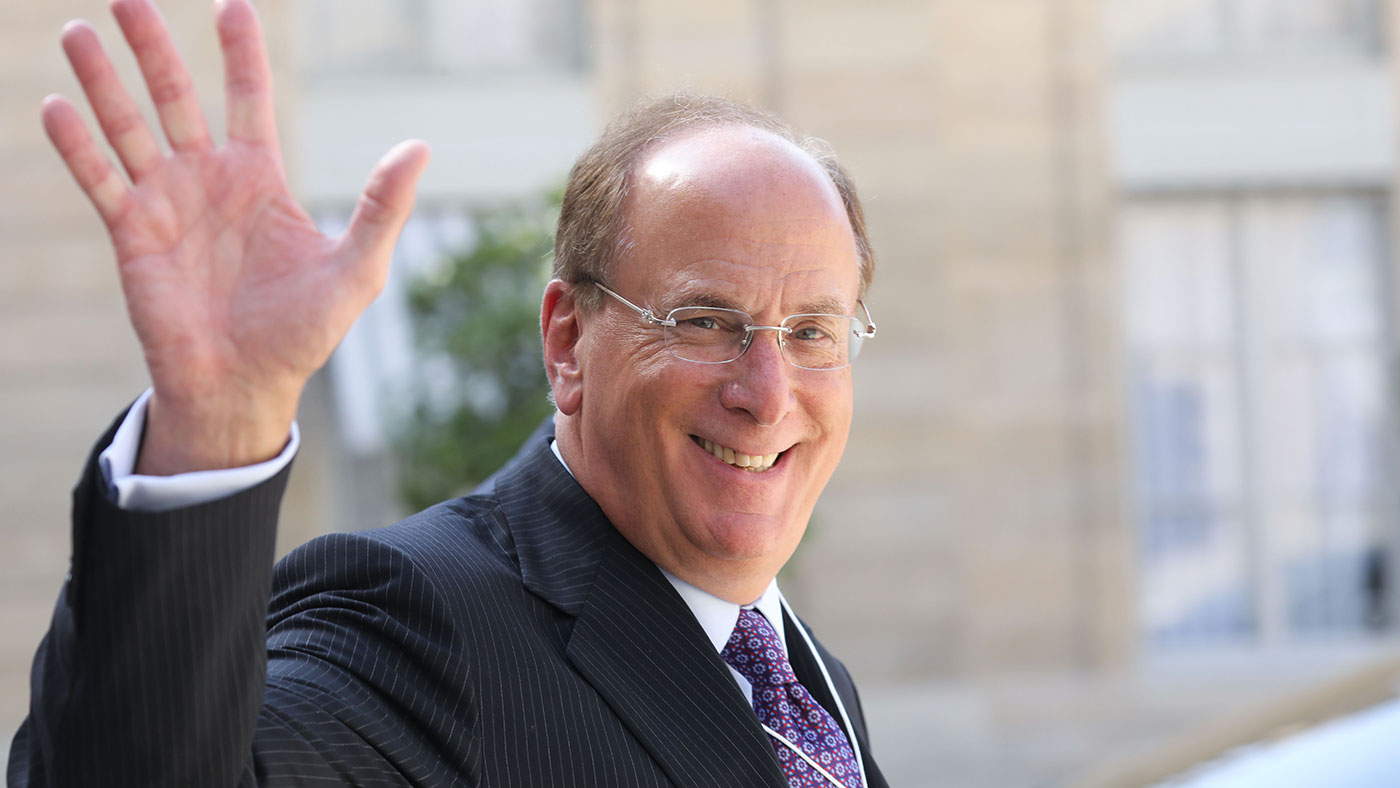How the boom in passive investing could create better-run companies
ESG investing, or "ethical investing" as it used to be called, is mostly about the marketing, says John Stepek. But it's not all bad.


Get the latest financial news, insights and expert analysis from our award-winning MoneyWeek team, to help you understand what really matters when it comes to your finances.
You are now subscribed
Your newsletter sign-up was successful
Want to add more newsletters?

Twice daily
MoneyWeek
Get the latest financial news, insights and expert analysis from our award-winning MoneyWeek team, to help you understand what really matters when it comes to your finances.

Four times a week
Look After My Bills
Sign up to our free money-saving newsletter, filled with the latest news and expert advice to help you find the best tips and deals for managing your bills. Start saving today!
It may surprise you to hear that I’m a bit cynical about ESG – that is, environmental, social and corporate governance-focused investing.
(When I were a lad, it was called ethical investing, but that’s not confusing enough for the finance industry.)
A lot of it is “greenwash”. A lot of it is purely marketing. A lot of it is highly unscientific virtue signalling.
MoneyWeek
Subscribe to MoneyWeek today and get your first six magazine issues absolutely FREE

Sign up to Money Morning
Don't miss the latest investment and personal finances news, market analysis, plus money-saving tips with our free twice-daily newsletter
Don't miss the latest investment and personal finances news, market analysis, plus money-saving tips with our free twice-daily newsletter
But that said, there are some bits that I’m more keen on.
The growing tendency of big passive funds to at least pretend to care about corporate governance is one of them.
Here’s why...
Why objections to passive investing and governance are flawed
We all know by now that passive investing is booming.
Passive funds don’t try to do anything clever. They just track a market, rather than aim to beat it. However, they end up being better than most active funds because they charge less, and because most active funds can’t beat the market either.
To be clear, I have nothing against active management. I believe that there is room in most investors’ portfolios for genuinely active management (which I’d access via investment trusts). Heck, some of my closest friends are active fund managers.
But if you don’t have the knowledge, advice or inclination to hunt for decent active managers (who do exist), then defaulting to passive makes a lot of sense.
Obviously, the fund management industry doesn’t like having its lunch pulled out from under its nose in such a brutal fashion. However, it can’t really argue with the fact that passive tends to beat active – which is, of course, the core attraction of passive.
So the critiques of passive tend to be more philosophical, such as: “How many active managers does it take to maintain the market’s price discovery mechanism?” (If you can think of a good punchline to this question, send it to me via Twitter.)
One such complaint about passive is about corporate governance. You see, as passive funds have grown ever larger, they’ve also ended up owning ever-increasing chunks of companies. This has a number of implications, but we’ll focus on just one today – stewardship.
The people who own companies are meant to at least keep an eye on what the people who manage companies are doing. I mean, if you invest your money in a firm, you want to make sure that it sticks to the game plan and that it’s responding to future threats and all the rest of it.
If you have lots of companies that are effectively owned by algorithms, then who’s keeping an eye on the management teams?
This looks like a reasonable point. But there are two big objections to it.
Good governance is becoming a competitive advantage
The first is this: what you need to remember is, what did people invest in before passive funds came along? The answer in many cases is simply: "closet tracker funds”.
A closet tracker fund is a fund that tries to hug its benchmark – ie, track the market. A fund manager knows they’ll get fired if they massively underperform the market for too long. But they won’t get fired for broadly being in line with the market.
This understanding – also known as “career risk” – incentivises them to play it safe. Unfortunately, that also prevents them from taking the bold decisions necessary to beat the market.
As a result, closet trackers don’t do much that’s different to passive funds in reality. A FTSE 100 closet tracker might own a bit more BP and a bit less HSBC than passive funds. But the aim is basically the same – don’t diverge from the index. And don’t kick up trouble.
For the end investor, this is the worst of all worlds. You get a fund that charges you more than a passive fund. You get a fund that probably won’t beat the market, and in fact, will give you a worse return than if you’d bought the passive fund. And you get a fund manager who is no more likely to vote against a management team’s recommendations than they are to take a voluntary pay cut of their own.
So passive funds are not displacing fund managers who spent all their time haranguing corporate managements to do a better job. They’re really just displacing overpaid versions of themselves.
The second objection is that big passive providers such as Vanguard and BlackRock are already very aware of this corporate governance issue. They are also aware that, with fees pretty much as low as they can go, they need to find other sources of differentiation.
In a world where “issues” are never far from the headlines, a focus on taking active stances and acting as the shareholders' champion is definitely one way to differentiate yourself from the competition.
BlackRock boss Larry Fink realised this a long time ago. Every year he sends a letter to chief executives shouting at them about the latest trend and how he’s going to make sure that BlackRock invests accordingly. This year, for example, he said that the company plans to drop thermal coal producers from its actively-managed funds, and creating ESG versions of its passive funds.
My point here is not to bang the drum for any particular cause. Honestly, I’d rather see Fink start talking about rewards for failure and clarity on CEO pay packets. But what I am pleased about is that stewardship is becoming an obvious battle ground for financial services companies to compete on.
And this is good news for the markets as a whole. One thing we often complain about is the distance between end investors and the managers of corporations. Shareholder capitalism has been undermined by intermediaries waving through grossly disproportionate rewards for chief executives, and failing to hold managements to account sufficiently.
If passive funds are realising that kicking up a fuss about bad management behaviour is a way to gain competitive advantage, then that puts pressure both on company managements to behave better, and on active funds to go even further, and to prove that they can be better stewards of capital than passive funds.
And that should be good news for all of us as investors.
Get the latest financial news, insights and expert analysis from our award-winning MoneyWeek team, to help you understand what really matters when it comes to your finances.

-
 Japanese stocks rise on Takaichi’s snap election landslide
Japanese stocks rise on Takaichi’s snap election landslideJapan’s new prime minister Sanae Takaichi has won a landslide victory in a snap election, prompting optimism that her pro-growth agenda will benefit Japanese stocks
-
 Alphabet 'is planning a 100-year bond': would you back Google for 100 years?
Alphabet 'is planning a 100-year bond': would you back Google for 100 years?Google owner Alphabet is reported to be joining the rare century bond club
-
 Low-cost index funds for simple investing
Low-cost index funds for simple investingTips Index funds are an easy, low-cost way for investors to invest in a sector or asset class. Here’s a selection of the cheapest passive tracker funds on the market right now
-
 Are UK house prices set to fall? It’s not so simple
Are UK house prices set to fall? It’s not so simpleAnalysis Figures suggest UK house prices are starting to slide, but we shouldn’t take these numbers at face value, explains Rupert Hargreaves.
-
 Tesco looks well-placed to ride out the cost of living crisis – investors take note
Tesco looks well-placed to ride out the cost of living crisis – investors take noteAnalysis Surging inflation is bad news for retailers. But supermarket giant Tesco looks better placed to cope than most, says Rupert Hargreaves.
-
 It may not look like it, but the UK housing market is cooling off
It may not look like it, but the UK housing market is cooling offAnalysis Recent house price statistics show UK house prices rising. But John Stepek explains why the market is in fact slowing down and what this means for you.
-
 Think the oil price is high now? You ain’t seen nothing yet
Think the oil price is high now? You ain’t seen nothing yetAnalysis The oil price has been on a tear in recent months. Dominic Frisby explains why oil in fact is still very cheap relative to other assets.
-
 What can markets tell us about the economy and geopolitics?
What can markets tell us about the economy and geopolitics?Sponsored Markets have remained resilient despite Russia's war with Ukraine. Max King rounds up how reliable the stockmarket is in predicting economic outlooks.
-
 The tech bubble has burst – but I still want a Peloton
The tech bubble has burst – but I still want a PelotonAnalysis Peloton was one of the big winners from the Covid tech boom. But it's fallen over 90% as the tech stock bubble bursts and and everything else falls in tandem. Here, Dominic Frisby explains where to hide as markets crash.
-
 Looking for a hedge against inflation? The FTSE 100 might be a good bet
Looking for a hedge against inflation? The FTSE 100 might be a good betAnalysis There are no assets that will protect investors' wealth entirely against inflation. But the FTSE 100 – a global stockmarket index with a sterling hedge – could be the best of a bad bunch says Rupert Hargreaves.